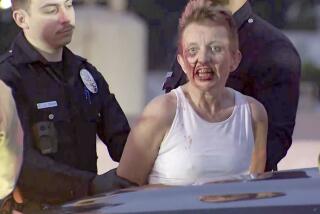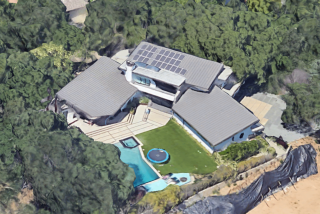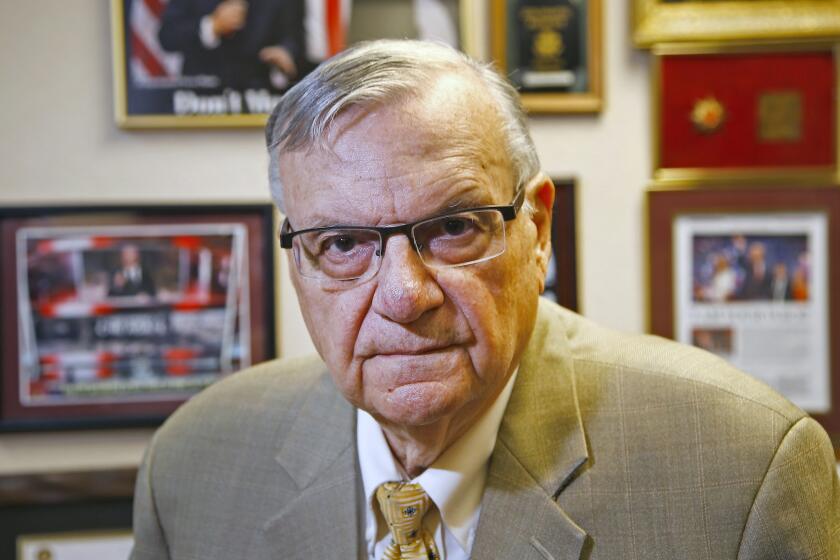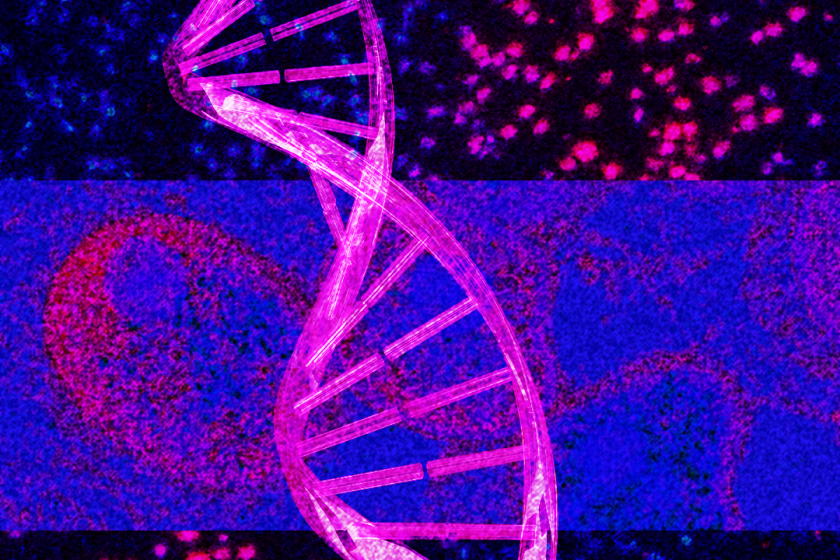Two Teen-Agers Must Stand Trial in Roadside Slaying of Migrants
A Municipal Court judge ruled Monday that two San Diego teen-agers must stand trial in the slaying of two unarmed Mexican migrant workers who were gunned down Nov. 9 as they walked along an isolated semi-rural road.
Characterizing the murders as “cold-blooded killings,” Judge H. Ronald Domnitz rejected several defense motions--including the proposed suppression of evidence gathered to date and the dismissal of charges against one defendant--and set an arraignment date of July 10.
During hearing testimony, a San Diego police detective said the alleged gunman, Kenneth Alexander Kovzelove, now 18, laughed and shouted “Die!” as he fired numerous rounds at the victims from a semiautomatic rifle.
Dislike of Mexicans
Kovzelove’s alleged motive was a longtime dislike of Mexican people, apparently originating with an unspecified unpleasant experience in his youth, according to testimony by Detective Patrick Alan Ruffner, who interrogated both suspects.
“He didn’t like the fact that they came into our country to work illegally,” Ruffner testified.
The two migrants, who were legal U. S. residents, were shot along a stretch of Black Mountain Road frequented by workers living in nearby camps.
Ruffner testified that both suspects admitted their part in the slayings during police interviews.
Along with his hatred of Mexicans, Kovzelove cited the “thrill” of killing, said A. David Stutz, the deputy district attorney prosecuting the case, said after the hearing.
Neither suspect has any connection with organized hate groups, such as Skinheads or the Ku Klux Klan, Stutz said.
Chronology of Crime
Authorities have given this chronology for the evening of the crime: Kovzelove, dressed in fatigues, his face partly concealed, positioned himself in the back of a pickup truck driven by co-defendant Dennis Bencivenga, 19. The vehicle came within 10 feet of the men, and Kovzelove popped up and fired 18 or 19 rounds from Bencivenga’s South Korean-made assault rife. Eleven rounds struck the men, Stutz said.
Kovzelove was arrested in March at Fort Benning, Ga., where he was in training as an Army paratrooper--a job he aspired to because it would afford him the opportunity to kill legally, according to statements made by prosecutors at previous hearings. Kovzelove intended to become a Green Beret, or special forces soldier, Stutz said.
Detective Ruffner testified Monday that Bencivenga, a one-time San Diego security guard, admitted to participating in the slayings during a January interview by an Army recruiter in San Diego. The recruiter notified police, and Bencivenga later acknowledged his involvement in the crime, although he said his motive was robbery, not racial hatred, according to Ruffner.
About $300 in cash was found on the bodies of the two victims, police said. Ruffner quoted Kovzelove as saying that Bencivenga had wanted to rob the victims but that the suspects saw another vehicle approaching and decided to leave.
Authorities have said that Bencivenga’s decision to come forward--apparently motivated by remorse--was the first break in what had been an unsolved double murder.
Both suspects have pleaded innocent. Prosecutors said it is unlikely the two would face a death penalty judgment. Each faces a life sentence if convicted.
Shackled to Chair
Kovzelove, shackled to a chair during the hearing, is being held on $1 million bail. Bencivenga is free on a $150,000 property bond posted by relatives.
The families of both suspects were present in court during Monday’s hearing, but have made few comments to reporters.
Missing from the session was any representative of the families of the two dead men--Hilario Castaneda Salgado, 22, a native of the Mexican state of Guerrero, and Matilde Macedo de la Sancha, 19, a native of the state of Mexico.
However, Stutz, the prosecutor, said the Mexican consul general in San Diego may retain a lawyer to represent the families, who might seek some form of civil redress. The Mexican consul could not be reached for comment Monday.
Both victims were poor migrant workers who periodically lived in the camps near the murder site, an area close to a number of agricultural nurseries. Both men apparently achieved legal status through the amnesty program, Stutz said.
More to Read
Start your day right
Sign up for Essential California for news, features and recommendations from the L.A. Times and beyond in your inbox six days a week.
You may occasionally receive promotional content from the Los Angeles Times.






